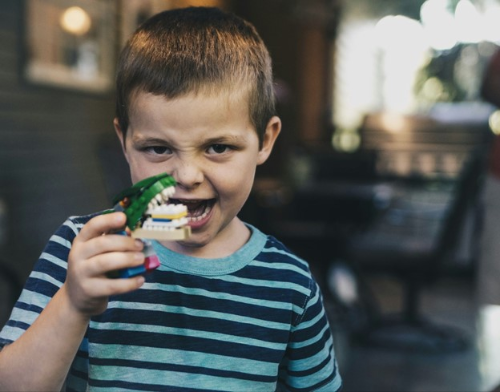The Roots Of Rudeness: How Parents Accidentally Raise Rude Children
Understanding And Addressing The Root Causes Of Rude Behavior In Children

Nobody likes to think their child is rude – but if you look at social media, especially in parent-filled spaces, you’ll see all kinds of complaints about how children behave. And it’s not like people set out to raise disrespectful or entitled kids. But it happens!
One of the best things we can do for our kids is to ensure they grow into happy, well-rounded adults. A bad attitude and disrespect for others can make life more difficult for your child as they grow up. So, let’s look at how parents can unintentionally raise rude children and see what you can do to build better behavior in your kids.
Problem One: Permissive Parenting
Some parents want to be their kids’ best friends. They might not like to set or enforce boundaries. Or maybe they’re overindulgent and let the kids rule the roost. Without clear guidelines for acceptable behavior, kids don’t learn about the importance of respect and consideration for others. Boundaries aren’t bad for kids. Having good boundaries does not restrict them from having fun. Boundaries help kids learn and grow.
When children don’t have the guidance they need and the understanding of what is and isn’t acceptable, it’s very frustrating for them and those around them. Nobody wins when there aren’t boundaries around behavior!
Problem Two: Over-Gratification
Another problem may be boundaries around over-gratification or overdoing it for your kids. Kids need to learn that not everything can be given to them.
Instead of jumping in and doing everything for your kid, be a constant support, standing by them on easy days and hard days. Help them work through their tough emotions, but don’t try to take the lead. You can’t feel their feelings for them, after all. Learning how to deal with disappointment helps kids build patience and respect for the needs of others around them.
Problem Three: Setting Examples
One of the most impactful ways children learn to behave is by observing—watching their parents and other adults. Rude, entitled kids often have parents who act rudely or entitled themselves. Your cultural norms and values play a role here, too.
Are your kids being raised to value assertiveness over politeness? If so, this can encourage them to prioritize their desires at the expense of respecting others. If kids internalize these actions, they’ll become part of their behavioral patterns.
Parents who don’t teach their kids empathy and compassion may unintentionally make them insensitive and disrespectful toward others. This isn’t something most parents do on purpose, but without help developing empathy, kids have a more challenging time understanding and respecting other peoples’ feelings and perspectives.
Problem Four: Communication Breakdowns
In addition to setting boundaries, you need to communicate with your kids and offer constructive feedback. However, good communication with kids can be challenging, especially when stressed or exhausted.
The problem is that when you fail to communicate your expectations effectively, children may act out due to confusion or frustration, which can lead to rude, disrespectful behavior.
Communication is a two-way street! Sometimes, kids have a hard time communicating with us as parents, especially about their emotions or if they’re feeling too much pressure. Children with unaddressed emotional needs may seek attention through negative behaviors because they know that it will get them the attention they crave– even if it’s negative attention. Providing a supportive, safe environment for communication can help address this type of rude behavior.
So, what should you do if you notice rude or disrespectful behavior in your child? Addressing these issues requires self-awareness, consistency, and a commitment to teaching positive behavior and leading by example. By modeling and reinforcing the behavior you want to see, you can help your kids develop respectful and considerate attitudes toward others.
Check out more informative, helpful blog posts on the Support for Stepdads blog!






